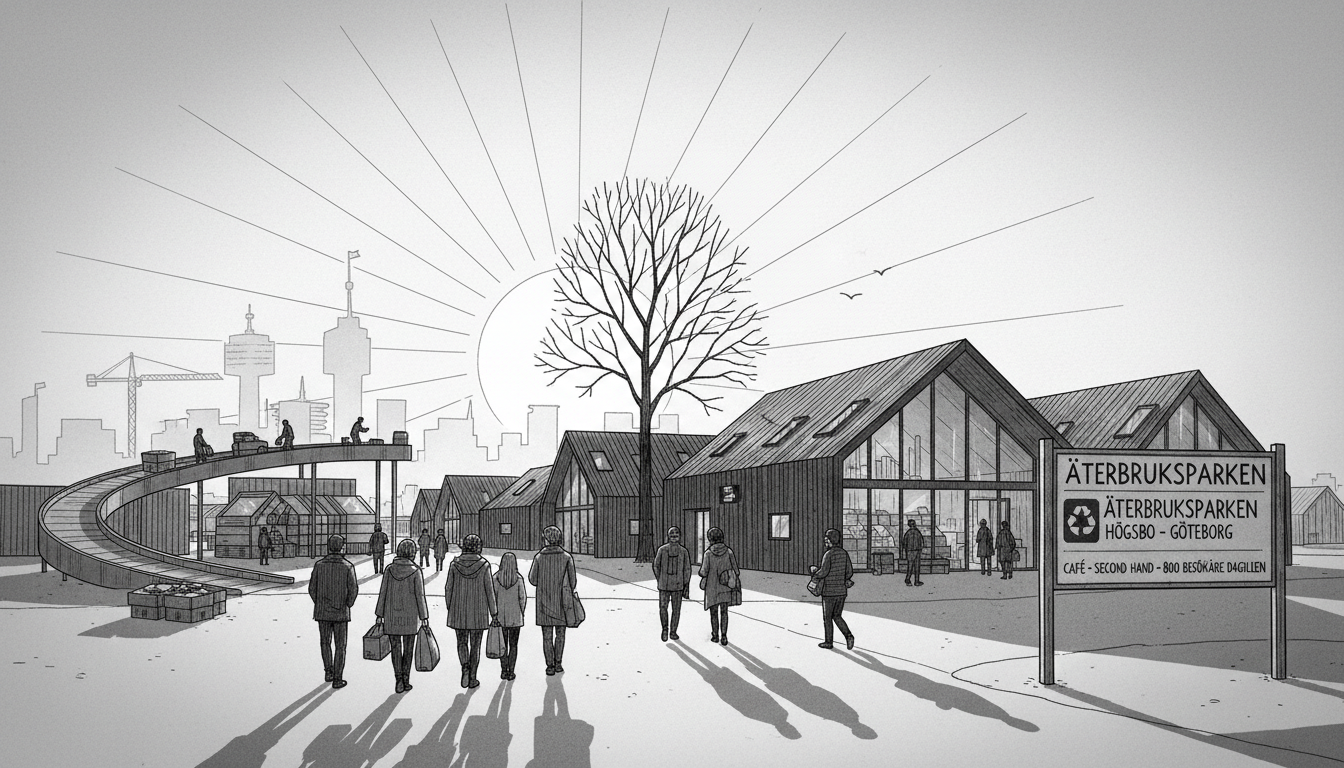Gothenburg's Högsbo district is constructing a major new recycling facility three times larger than the current site. The new circular economy park will accommodate up to 800 visitors daily. It will feature a café and second-hand store alongside expanded recycling services.
Johannes Olsson, chairman of development company Higab, emphasized the project's importance. He said in a statement that convenient recycling access prevents illegal dumping. The current Högsbo recycling center is among Gothenburg's most popular facilities despite being the smallest.
This expansion reflects Sweden's national commitment to waste management innovation. The country has pioneered circular economy models for decades. Swedish municipalities typically operate recycling centers as public services. They aim to make sustainable choices accessible to all residents.
Gothenburg faces particular waste management challenges as Sweden's second-largest city. The city's growing population creates increased demand for recycling infrastructure. The new Högsbo facility addresses capacity constraints that have led to queues and limited access hours.
Circular economy parks represent the next evolution in Swedish waste management. They combine traditional recycling with reuse and education spaces. The inclusion of a second-hand store demonstrates practical circular economy principles. Visitors can both dispose of unwanted items and find new treasures.
The café component creates a community hub atmosphere. This approach encourages longer visits and changes public perception of recycling centers. Rather than quick disposal trips, these parks become destinations for sustainable living activities.
Construction timelines and exact opening dates remain unspecified. The project signals Gothenburg's continued investment in environmental infrastructure. Similar facilities have proven successful in other Swedish cities like Malmö and Uppsala.
International observers often look to Swedish waste management models for inspiration. This Högsbo development offers another case study in integrating recycling into urban planning. The facility's scale suggests anticipation of continued population growth in western Gothenburg.
Local residents will benefit from reduced travel times to recycling facilities. The expanded capacity should decrease waiting times during peak hours. The project represents a practical implementation of Green Party policies within municipal coalition governance.

